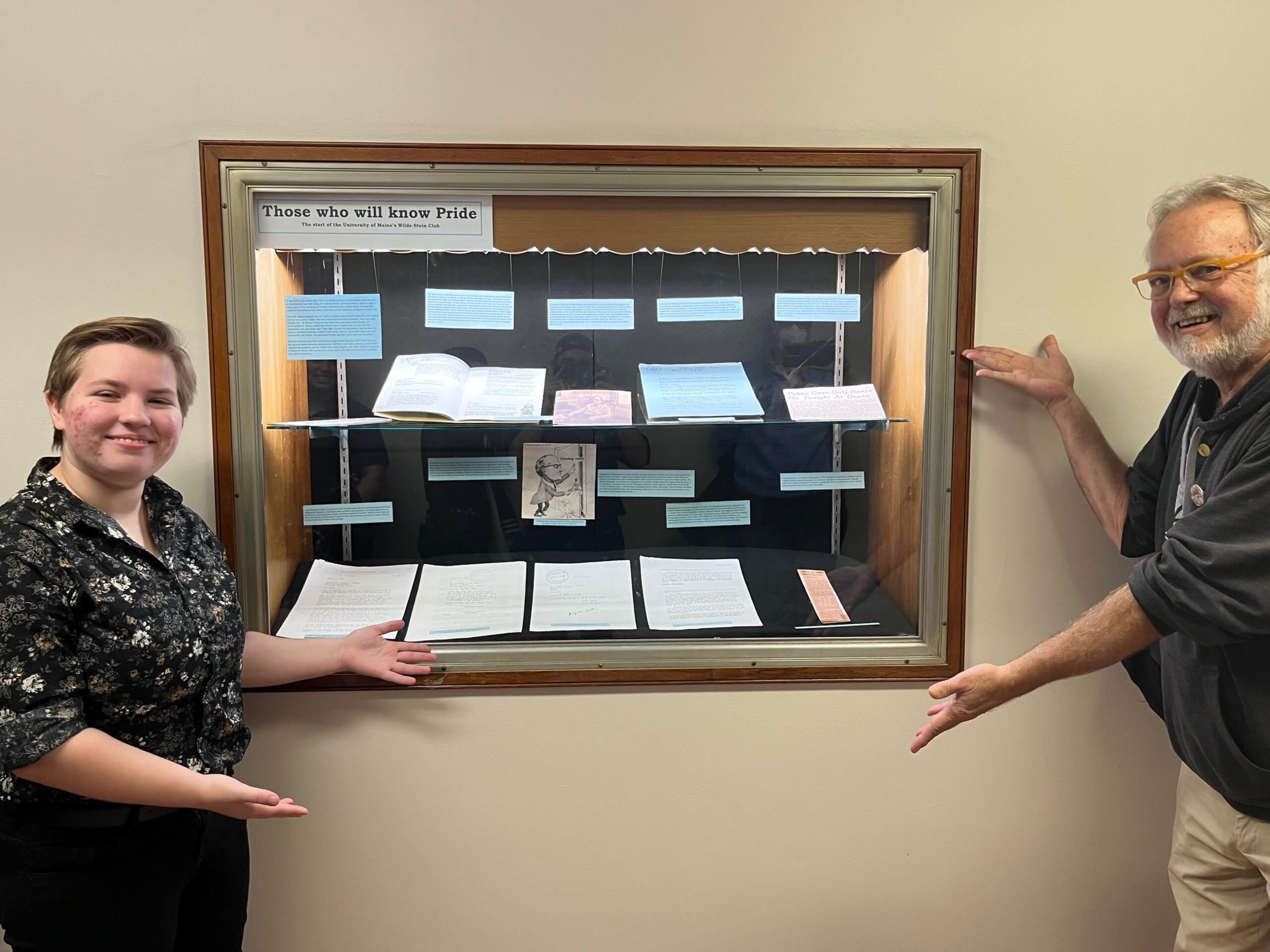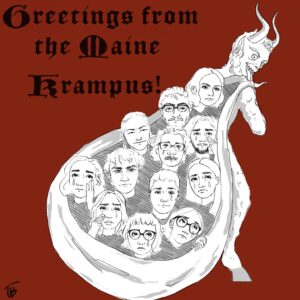The State of Maine has a checkered past in regard to LGBTQ+ issues. In the midst of the University of Maine’s Wilde-Stein club’s anniversary, it is vital to understand major past landmarks in order to prevent them from repeating themselves.
1820: Maine continued Massachusetts’ Sodomy laws.
“That if any man shall commit the crime against nature with a man or male child, or man or woman shall have carnal copulation with a beast…”
1840: Heterosexual sodomy was made criminal.
1938: In State v. Cyr, it was ruled that fellatio fell under the scope of the sodomy statute as being a “crime against nature.”
1950: State v. Townsend ruled that sodomy law was broadened to include acts of cunnilingus.
1973: Founding of Wilde-Stein Club at the University of Maine.
1976: Maine’s statutory criminalization of same-sex activity was repealed.
2012: A bill for legalizing same-sex marriage was approved in Maine.
2023: Anti-Trans bills on the rise in the US.
The current President of the Wilde-Stein Club (UMaine’s Queer-Straight Alliance), Kass Belaya, discusses these landmarks in honor of the 50th anniversary of the club (Oct. 13, 2023). While there has been significant progress for LGBTQ+ people since its founding, Belaya said, “People should have realized that discrimination wasn’t so long ago.”
Steve Bull, one of the original founders of Wilde-Stein, discusses the “ebbs and flows in social struggle.”
“I always retain my appetite to fight and that has not changed, the fire has not been extinguished…right now, the onslaught of attacks on transgender folks is just, universal around the country; physical attacks as well… those in power are making the people fight against each other rather than against the system,” Bull stated.
The Wilde-Stein Club was created first and foremost as a community. It was made not to be political but to be a support system. Unfortunately, when it was founded, it was made to be a controversial entity. The community was hit with backlash after a dance held in December 1973. There was a legislative battle from right-wing forces that fought against UMaine for adopting the club. They threatened to pull funding due to the notion that the club was in violation of Maine’s sodomy laws that were still active at the time.
Being a battleground state, every enemy of LGBTQ+ rights spurred just as many supporters of the gay liberation movement. Not only being a powerful political domain, Maine is significantly more rural than other places that were beacons of queer organizations at the time (Los Angeles, San Francisco, New York City). This pursuit for community brought support from unlikely places, i.e. certain clergy members in Maine that signed on behalf of Wilde-Stein. Essentially, with every piece of resistance brought another piece of support that eventually resulted in the Maine Gay Symposiums further concreting the club.
“The opposition forces shot themselves in the foot,” Bull said.
After Wilde-Stein won its battle with newfound support, the club’s members wanted to lean into its original purpose: to be a community. Their fight, however, was not over. In 1975, Maine repealed their harmful Sodomy Laws that cost the happiness and safety of queer people for far too long. The waves after the 70s seemed to calm, but those social justice “ebbs and flows” never seem to cease. The LGBTQ+ communities defeated the sodomy law, only to be hit with the AIDs epidemic a few years later. However, even though these ebbs and flows persisted, Wilde-Stein stayed strong.
Following the 2015 U.S. Supreme Court Ruling on same-sex marriage, Belaya and Bull have noted an attitude towards LGBTQ persons. Belaya said the attitude is something like this, “You did your fight, so you can be done now.” While the change since the founding of Wilde-Stein is extensive, it is not yet complete. The fight continues for the queer community, as Bull called attention to. The current president of Wilde-Stein is in a hard position; on the one hand, they “hope to one day see there is a 100th anniversary” of the club, but they also hope the world will be in a better place where it will not be necessary to partake in social justice.
In the height of new anti-trans bills in the US, Maine LGBTQ+ historian Megan MacGregor, tries to deduct the sanctity of queer people in light of new bans. MacGregor hopes for a positive future in Maine and within the Wilde-Stein club. While she sees Maine in a good position, highlighting its civil rights protection and better comparative legislation, there is still anxiety about history repeating itself. MacGregor hopes for Maine to “hold the line, but never go backward” in relation to social justice matters.
For an understanding of the present, we must look to the past. The Wilde-Stein Club’s online exhibit can be visited here.













